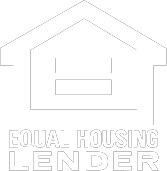Tulsa VA Loan
Scissortail Financial offers VA loans in Tulsa and Oklahoma, with no down payment and competitive rates for veterans. We’ll guide you through the process smoothly.

Table of Contents
What is an Investment Loan?
Tulsa investment loans are tailored for individuals and businesses seeking to invest in real estate. Whether you’re looking to acquire rental properties, develop commercial ventures, or renovate existing properties, these loans provide the necessary capital to enhance your real estate portfolio and boost passive income streams.
Key Features of Tulsa Investment Loans:
Flexible Financing Options: Choose from fixed or adjustable interest rates to suit your financial strategy and investment goals.
Leverage Your Investment: Utilize borrowed funds to purchase, develop, or renovate properties, maximizing your potential returns.
Income Generation: Benefit from rental income or capital gains as you invest in single-family homes, multi-family units, commercial properties, and more.
Variety of Property Types: Investment loans are applicable to a wide range of property types, including residential and commercial real estate.
Higher Loan Amounts: Typically offer higher loan limits compared to conventional loans, allowing you to secure larger investments.
Tulsa investment loans offer a strategic way to expand your real estate ventures, providing the financial support needed to achieve your investment objectives.
Tulsa Investment Loan Requirements
To secure an investment loan in Tulsa, borrowers must meet certain criteria established by lenders to ensure the viability and profitability of the investment. Here are the key requirements:
Credit Score:
A minimum credit score of 620 is typically required. A higher credit score may improve your chances of securing better loan terms.
Down Payment:
Generally, a down payment ranging from 15% to 25% is needed, depending on the type of property and the specific terms of the loan.
Debt-to-Income Ratio (DTI):
A preferred DTI ratio of 45% or less is usually required. This ratio compares your monthly debt payments to your gross monthly income, ensuring you can manage the additional mortgage payment.
Income Verification:
You must provide proof of stable income and sufficient cash flow to cover mortgage payments. This can include pay stubs, tax returns, and bank statements.
Employment History:
A minimum of two years of steady employment is typically required. Alternatively, demonstrated investment experience can also be considered, showing your capability to manage and profit from investment properties.
Property Appraisal:
The property must undergo an appraisal to determine its market value and rental income potential, ensuring it meets the lender’s requirements and supports the loan amount.
Meeting these requirements helps ensure that you’re well-positioned to successfully manage and benefit from your investment property.
Types of Investment Loans
When exploring options for financing real estate investments, several types of investment loans are available, each catering to different financial situations and investment strategies. Here’s an overview of the most common types:
1. Conventional Investment Loans
Conventional investment loans are traditional mortgage products offered by banks and credit unions. They typically have standard terms and conditions and require a higher credit score and down payment compared to other loan types. These loans are often used for purchasing rental properties or multi-family units.
2. Debt Service Coverage Ratio (DSCR) Loans
DSCR loans are designed for real estate investors who want to focus on the property’s income potential rather than their personal financial profile. The loan approval is based on the property’s ability to generate sufficient income to cover the mortgage payments. This type of loan is ideal for investors with strong rental income but less favorable personal financial metrics.
3. Bank Statement Loans
Bank statement loans are tailored for self-employed individuals or those with non-traditional income sources. Instead of relying on W-2s or tax returns, lenders use bank statements to verify income. This type of loan is suitable for investors who have substantial cash flow but may have difficulty documenting traditional income.
4. Asset-Based Loans
Asset-based loans are secured by the value of the investor’s assets rather than their creditworthiness or income. The loan amount is determined based on the value of the property being financed or other assets owned by the borrower. This type of loan is beneficial for investors who may have significant assets but less traditional income documentation.
5. Private Money Loans
Private money loans are provided by individual investors or private lending institutions rather than traditional banks. These loans are often used for short-term financing needs, such as property renovations or quick purchases. Private money lenders are generally more flexible with their terms and can offer faster approval processes, though they may come with higher interest rates.
Each type of investment loan offers unique advantages depending on your financial situation and investment goals. Understanding these options can help you choose the best financing solution for your real estate ventures.
Tulsa Mortgage Programs
In Tulsa, a variety of mortgage programs are available to address different financial needs and homebuyer situations. Here’s a closer look at some of the popular options:
VA Loans
VA loans are tailored specifically for veterans, active-duty military personnel, and eligible surviving spouses. These loans offer several advantages, including favorable terms, no requirement for a down payment, and no need for private mortgage insurance (PMI). This makes them an excellent option for those who qualify, providing significant cost savings and accessible home financing.
Conventional Loans
Conventional loans are not backed by any government agency, unlike VA or FHA loans. They typically come with fixed interest rates and flexible terms, which can be customized to suit various financial situations. However, they generally require higher credit scores and larger down payments compared to VA loans. Conventional loans are a popular choice for those who meet the credit and down payment requirements.
FHA Loans
FHA loans are insured by the Federal Housing Administration and are designed to help borrowers with lower credit scores and smaller down payments. These loans are ideal for first-time homebuyers or those with less-than-perfect credit, making homeownership more attainable. The insurance provided by the FHA helps mitigate lender risk, allowing for more accessible loan terms.
USDA Loans
USDA loans are intended for homebuyers in rural areas and offer the benefit of no down payment. Backed by the United States Department of Agriculture, these loans are a great option for those looking to purchase a home in eligible rural and suburban areas. The lack of a down payment requirement can significantly reduce the upfront costs of buying a home.
Section 184 Loans
Section 184 loans are designed specifically for Native American homebuyers. These loans provide favorable terms and lower down payments, making them a beneficial option for those who qualify. The program aims to promote homeownership within Native American communities by offering accessible and affordable financing solutions.
Refinance Loans
Refinance loans allow homeowners to modify their existing mortgage terms or interest rate. This can be an effective way to reduce monthly payments or shorten the loan term, potentially saving money over time. Refinancing can be a strategic financial move if interest rates have dropped or if you want to change your loan’s structure.
Investment Property Loans
Investment property loans are geared towards purchasing properties for rental or investment purposes. These loans are designed to support real estate investors looking to acquire rental homes or other investment properties. They often come with different terms and conditions compared to standard home loans, reflecting the investment nature of the property.
Second Home Loans
Second home loans are used to purchase vacation homes or additional residences. These loans can have different requirements compared to loans for primary residences, reflecting the unique needs and financial profiles of second-home buyers. They provide an opportunity for individuals to own multiple properties.
Jumbo Loans
Jumbo loans are meant for high-cost properties that exceed the conforming loan limits set by government agencies. These loans typically come with stricter requirements but offer competitive rates for larger loan amounts. They are ideal for buyers looking to finance more expensive properties.
Down Payment Assistance Programs
Down payment assistance programs are designed to help first-time homebuyers with grants or low-interest loans to cover the down payment. These programs aim to make homeownership more accessible by reducing the financial barrier of the down payment, enabling more individuals to purchase their first home.
First-Time Home Buyer Programs
First-time homebuyer programs offer special benefits such as lower interest rates or down payment assistance. These programs are tailored to help new buyers enter the housing market with more favorable financing terms, making the process of buying a first home smoother and more affordable.
At Scissortail Financial, we are here to help you navigate these mortgage options and find the best solution for your needs. Our team is dedicated to providing personalized support and guidance throughout the home financing process.
FAQ's
Tulsa Investment Loan FAQ's
An investment loan is a type of financing specifically designed for purchasing, developing, or renovating real estate properties intended for investment purposes, such as rental properties or commercial ventures.
Common types of investment loans include Conventional Loans, Debt Service Coverage Ratio (DSCR) Loans, Bank Statement Loans, Asset-Based Loans, and Private Money Loans. Each type caters to different financial situations and investment strategies.
Qualification requirements vary by loan type but generally include a minimum credit score, a down payment (typically 15% to 25%), proof of income, and an appraisal of the property. Specific requirements depend on the loan type and lender.
A Debt Service Coverage Ratio (DSCR) loan is based on the income generated by the property rather than the borrower’s personal financial situation. The loan is approved based on whether the property’s rental income covers the mortgage payments.
Bank Statement Loans are designed for self-employed individuals or those with non-traditional income sources. Instead of using W-2s or tax returns, lenders use bank statements to verify income, making it easier for those with irregular income to qualify.
An Asset-Based Loan is secured by the value of the borrower’s assets rather than their creditworthiness or income. The loan amount is determined based on the value of the property or other assets owned by the borrower.
Private Money Loans are provided by individual investors or private lending institutions rather than traditional banks. They are often used for short-term financing needs and can offer more flexible terms and faster approval processes, though they may come with higher interest rates.
Down payment requirements typically range from 15% to 25% of the property’s purchase price. The exact amount depends on the loan type and lender’s terms.
Yes, investment loans can be used for a variety of property types, including single-family homes, multi-family units, commercial properties, and more. The specifics depend on the loan type and lender.
Common documentation includes proof of income (such as bank statements or tax returns), a credit report, details of the property being financed, and an appraisal report. Requirements can vary based on the loan type.
